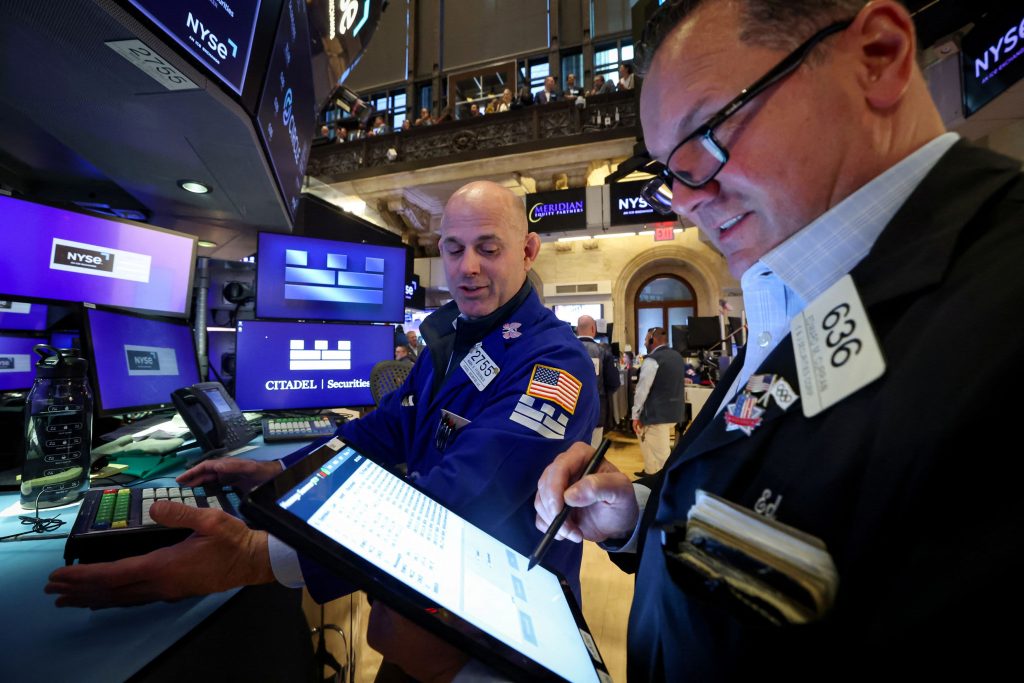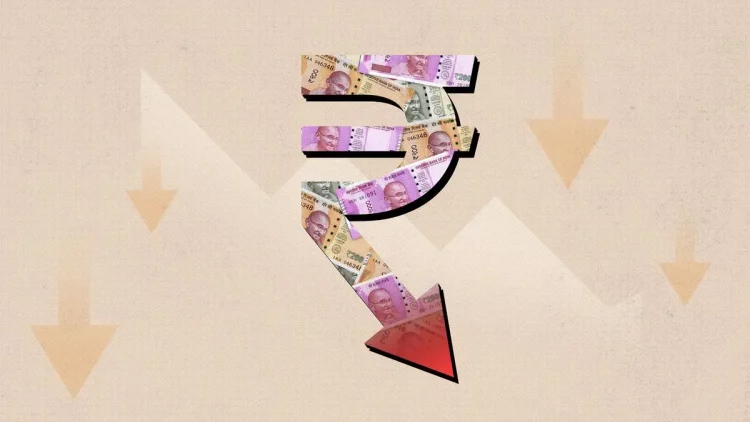NSE CEO Interview Insights and Institutional Optimism
India’s equity market is experiencing one of the most astonishing bull runs in the world, with the National Stock Exchange (NSE) at the center of this financial phenomenon. In a recent conversation with NSE’s CEO Ashishkumar Chauhan, several critical themes emerged that suggest the Indian market’s rally is not simply a case of speculative fervor but rooted in structural evolution. Chauhan emphasized that unlike previous cycles, this surge is supported by robust macroeconomic indicators, rising domestic participation, and a digital infrastructure that rivals global peers. He pointed to India’s record-breaking IPO pipeline, improved transparency via regulatory reforms, and rising corporate profitability as signs of a maturing capital market rather than one overheating.
Indeed, India’s GDP is projected to grow at over 7% annually through 2026, supported by strong domestic consumption, infrastructure investment, and digital financial inclusion. From Chauhan’s perspective, India’s stock market is entering a new phase: from being a frontier market dependent on foreign flows to becoming a self-sustaining engine of wealth creation. Still, even he cautioned that retail exuberance, while welcome for liquidity, must be matched with investor education and regulatory vigilance.
He also highlighted that global fund managers are not just buying the India story for cyclical growth but as a strategic allocation. With geopolitical tensions nudging capital away from China, India is being positioned as the go-to emerging market, thanks to its stable institutions, youthful demographic, and proactive policy stance. According to Chauhan, the NSE’s ambition is to make Indian equities a “first stop” for global capital rather than an afterthought in emerging market portfolios.
Retail Investor Frenzy and the Risk of Overheating
Despite the macro optimism, skeptics warn that parts of the Indian market are starting to look frothy, especially when one examines retail trading behavior. Demat account registrations have exploded since 2020, now topping 150 million—more than doubling in just three years. Retail investors now account for over 40% of total trades on the NSE, a dramatic shift from a decade ago when institutions dominated. This democratization of access is a positive trend, but also brings risk when short-term speculation replaces long-term investing.
Brokerages report record margin trading activity, and stocks in sectors like small-cap tech, specialty chemicals, and renewable energy have seen meteoric gains without corresponding earnings support. Social media is full of influencer-driven stock picks, while YouTube trading tutorials with titles like “How I Made ₹1 Lakh in 1 Day” rack up millions of views. This mirrors the retail-driven frenzy seen in U.S. markets during the meme stock craze, raising alarm bells among veteran analysts.

Valuation metrics also suggest caution. The Nifty 50’s price-to-earnings (P/E) ratio has consistently hovered above 23x in 2025, well above its long-term average. Small-cap indices are trading at even more stretched multiples, with some stocks pricing in years of future growth. While strong earnings growth can justify premium valuations, the divergence between fundamentals and sentiment in some corners of the market could prove dangerous if economic momentum falters.
Regulators like SEBI have begun tightening rules around margin funding, IPO disclosures, and social media promotions, signaling awareness of the speculative excesses building beneath the surface. Yet the sheer pace of retail inflows—driven by aspirations, FOMO, and easy access via fintech apps—suggests that any correction could trigger a sharp pullback, particularly in retail-heavy segments.
Demographics and Technology as Long-Term Catalysts
Zooming out from the current exuberance, the foundation of India’s bullish case remains exceptionally strong. At the heart of the story is its demographic dividend. With a median age of just 28 and over 65% of the population below 35, India has a workforce advantage unmatched by any major economy. This demographic tailwind is paired with a rising middle class, estimated to surpass 500 million by 2030, which is expected to fuel domestic consumption and housing demand for decades.
Moreover, India’s technology ecosystem is accelerating. The rise of digital payment platforms like UPI, widespread 4G and 5G adoption, and the government’s Digital India initiative are reshaping commerce, governance, and access to credit. India’s internet economy is projected to reach $1 trillion by 2030, and this digital infrastructure is feeding into more efficient capital markets, smarter retail participation, and better financial inclusion.
Another major tailwind is manufacturing. The Modi government’s Production Linked Incentive (PLI) schemes have attracted global players in electronics, semiconductors, and renewable energy. Companies like Apple, Tesla, and Foxconn are expanding production bases in India, reducing reliance on China and solidifying India’s role as a critical node in global supply chains.
Infrastructure investments—from highways to digital corridors—are also laying the groundwork for productivity gains. The rollout of high-speed freight trains, smart logistics parks, and expanded metro networks in cities like Bengaluru and Delhi is improving economic efficiency. This directly boosts corporate profitability over the long term, supporting higher stock valuations.
And unlike previous cycles where India was heavily reliant on foreign institutional investors (FIIs), the rise of domestic mutual funds and systematic investment plans (SIPs) has added resilience to the market. Monthly SIP flows now exceed ₹20,000 crore (~$2.4 billion), providing a steady stream of capital into equities regardless of global macro headwinds.
Is This a Bubble or a Megatrend?
The most important question investors are asking is whether India’s current bull run is a short-term bubble or the early innings of a long-term structural re-rating. The truth may lie somewhere in between. While certain pockets of the market—particularly small caps and speculative tech—show classic signs of overheating, the broader market is still driven by earnings growth, macro tailwinds, and policy stability.
History suggests that sustained outperformance requires more than optimism. It needs sustained reform, productivity gains, and macro stability. India has made significant progress, but challenges remain. Bureaucracy, judicial delays, income inequality, and job creation need continued focus. Inflation control will be another test as the global commodity cycle tightens again.
Moreover, any sharp correction—especially from abroad, such as a U.S. recession or another Fed tightening surprise—could cause temporary capital flight. But as long as domestic investors remain engaged and corporate earnings keep pace with valuations, the market’s foundation remains solid.
From a global investor’s perspective, India offers a rare combination of growth, governance, and diversification. Unlike China, it is not facing systemic regulatory risks. Unlike the U.S., it has not reached valuation saturation across all sectors. And unlike many emerging markets, it has a strong rule-of-law framework and open capital markets.
How to Invest Without Getting Burned
For those considering entering or increasing exposure to India, the key is selective participation and long-term orientation. Passive strategies through India-focused ETFs like iShares MSCI India ETF (INDA) or WisdomTree India Earnings Fund (EPI) offer broad exposure, while ADRs like Infosys and Wipro provide access to leading Indian companies with global footprints.
Active mutual funds that focus on quality large caps, such as HDFC Flexi Cap or SBI Bluechip Fund, can help mitigate volatility. Investors should avoid chasing returns in low-quality small caps or newly listed IPOs without earnings support. Instead, focus on secular themes like banking, infrastructure, consumer staples, and export-oriented tech and pharma.
Thematic ETFs focused on India’s digital economy or manufacturing revival are also gaining popularity among global investors. For instance, funds targeting renewable energy firms participating in India’s solar transition, or logistics companies benefiting from supply chain formalization, could offer long-term alpha.
In short, avoid the hype and focus on the data. Use corrections to build positions and maintain a minimum three- to five-year horizon. Remember that even in bull markets, sharp drawdowns are part of the journey.
Conclusion: India at an Inflection Point
India’s stock market boom in 2025 is not just about liquidity or momentum—it is underpinned by a tectonic shift in economic structure, capital markets development, and global investor perception. While there are signs of excess in some segments, the broader rally is driven by genuine reforms, technology adoption, and demographic momentum.
Whether this moment becomes a bubble or the start of a multidecade re-rating depends on how policy, regulation, and investor behavior evolve. But for now, India offers one of the most compelling equity stories globally—and one that investors can no longer afford to ignore.












































